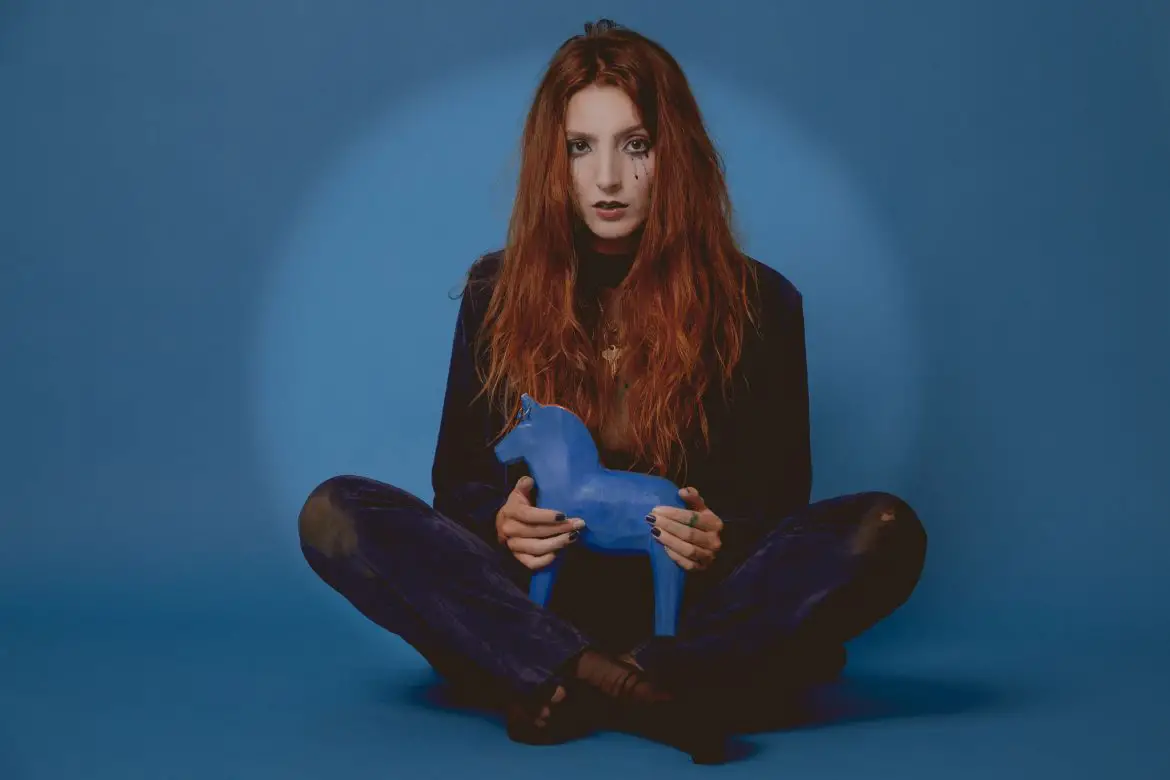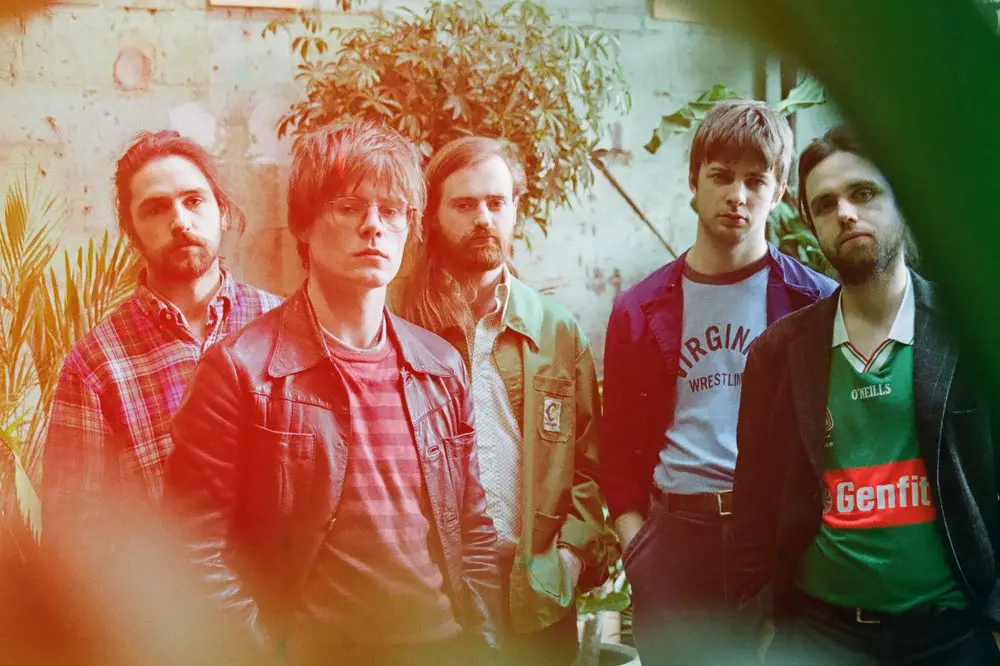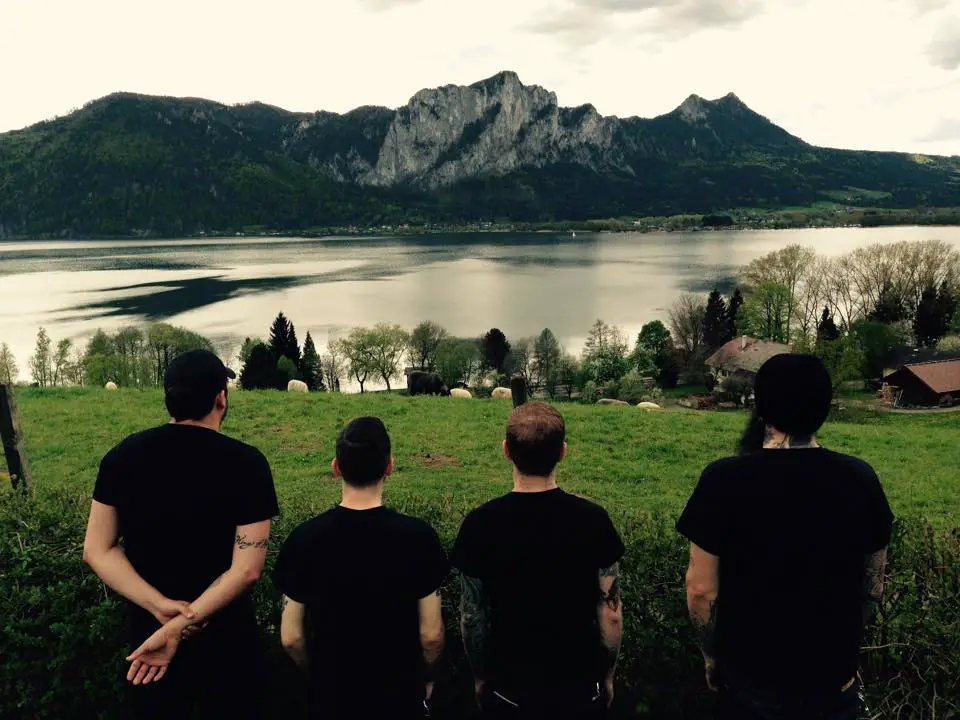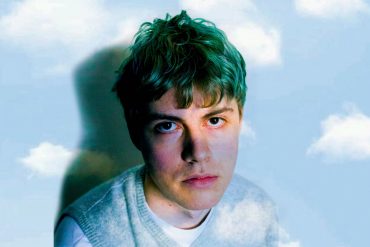Sloppy Jane’s Haley Dahl reflects on the years-long journey of growing alongside her larger-than-life sophomore album, ‘Madison.’
Stream: ‘Madison’ – Sloppy Jane
I want to make something that someone can walk into and experience that feeling of wonder, and have it not be fake.
As bright as they may burn in their initial conception, teenage dreams aren’t particularly known for their longevity. For some fated daydreamers, however, those fantasies mark the beginning of the rest of their lives.
Bicoastal musician Haley Dahl first embarked on her journey as Sloppy Jane over a decade ago, when she was a high schooler chasing her punk ambitions at LA DIY haven The Smell. From those crude beginnings, the project morphed and expanded as she did, amalgamating into the unique hybrid of performance art, experimental rock, and chamber pop that has garnered her a cult following. Although Dahl recently signed to longtime friend Phoebe Bridgers’ new label, Sloppy Jane is steadfastly committed to remaining boundless.
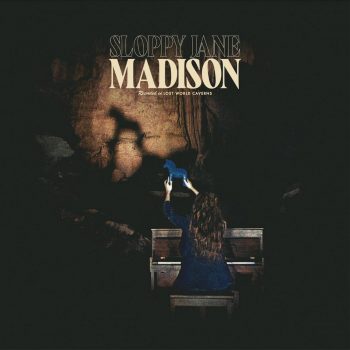
Much like Sloppy Jane itself, Dahl’s sophomore record Madison is impossible to pin down with absolute certainty. Among its multitudes, it’s a gothic concept musical, an avant-garde heartbreak epic, and perhaps one of the most stunning love letters to have been written in recent years. The weight of the project itself is embedded in its ambitious makeup—in true goth fashion, she recorded her second album in a series of caves, becoming the first person to ever do so in the process.
Steeped in the aggravation of Dahl’s own yearning, Madison conjures a breathtakingly macabre world ruled by reckless devotion (see “Jesus and Your Living Room Floor”), visceral decay, all-consuming self-destruction, and swelling orchestral romanticism. Striking poeticism and darkly theatrical tendencies juxtapose vivid images of holiness and morbidity just as much as they blur the boundaries between the two. Dahl’s “grievin’ and dreamin’” amounts to a strangely beautiful and vast emotional landscape, symbiotically eroded into a magnificent formation in one of her many images.
Madison is out November 5, 2021 courtesy of Saddest Factory Records and Dead Oceans.
I think that everything you work on, you kind of work on forever. It all becomes a part of you and evolves.
— —
:: stream/purchase Madison here ::
— — — —
Stream: “Wilt” – Sloppy Jane
A CONVERSATION WITH SLOPPY JANE
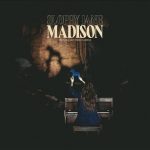
Atwood Magazine: What has the process of preparing this new live experience felt like?
Haley Dahl: It’s been really fun because I write music with live sets in mind. [With] records, you do your best to make something that sounds three-dimensional, but any music that you’re just listening to is not popping off the page as much as when you watch it performed live. When writing Madison, there’s a lot of stuff that I thought about for the live show, keeping it in such a way that it would be satisfying to watch it played live. I like playing with tempo and stops and starts and all of this stuff when I conduct live, so I was really excited to start incorporating some of that into the new set. I don’t really think that anything ever gets done, that is something I learned from this project. There was mixing, mastering, I [also] see the videos as part of it. I consider the business end part of the work, also. It’s all the pieces that add up to a whole: working out the ways in which it would be released, putting together a live show, and then I’ll be touring the live show. There’s kind of no end in sight right now. I think that everything you work on, you kind of work on forever. It all becomes a part of you and evolves. The next thing that I make is going to be extremely informed by what I just made—it’s gonna be a continuation of the same thing even if I’m giving it a different name.
I used to think that I had to be hurting myself for something to be interesting, or for something to feel or look big or impressive.
Let’s talk about the Aquarius urge to go into caves. What do caves inspire in you in particular?
Haley Dahl: I decided to do this project before I had actually been to any caves—I just liked the drama of them. I like the way that reverb lends itself to dramatizing music, natural reverb specifically. I was just blown away by every single cave that I visited. Not all of them are huge, but the big ones are very big, and they have these formations growing in them that are so miraculous. There’s just something about that that makes me emotional, staring at these epic things that have grown in total darkness over millions of years. They’re not doing it to be seen, which I know sounds dumb because it’s nature, but they’re these stunning things that no one would’ve seen until someone fell into a hole on accident millions of years after they were formed. There’s something really profound about the experience of standing in a place that is that old, contained, and untouched. It feels like everything that has ever happened in there is happening at once.
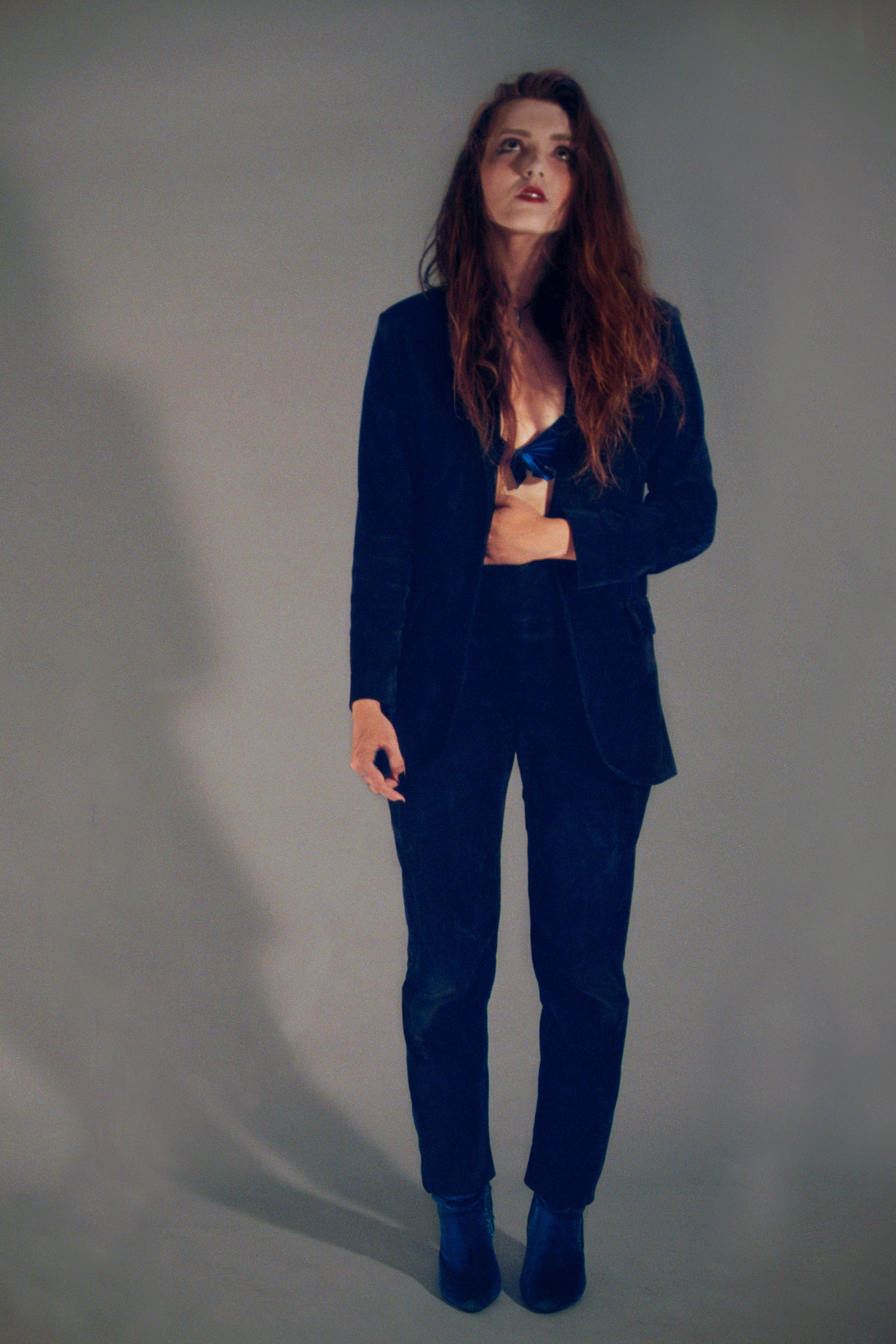
That sounds like a huge part of the Sloppy Jane philosophy, making this huge thing for someone to miraculously stumble upon.
Haley Dahl: Yeah. I had a really big imagination as a little kid and I would always read books or watch movies where a kid opens a door and is somewhere amazing all of a sudden, like Narnia and Coraline. Like The Wizard of Oz where they fall asleep and wake up somewhere phenomenal, or like Willy Wonka, where you get the Golden Ticket and a door opens and you’re suddenly in this beautiful, Technicolor world. My dream for my whole life was for that to happen. I would fling open doors and I would treat every person that I met like they were somebody who might fully change my life, and I have these grand expectations for everything. Over and over again, you get let down by wanting that, and everybody else is also looking for that. I want to be that now, instead. It’s the second-best thing. I want to make something that someone can walk into and experience that feeling of wonder, and have it not be fake. The more people who do that, the more of that there is, then maybe one day we’ll have a world where there are interesting things to be found.
That's something I wanted to revisit, the ‘ridiculousness of feelings’ that you've talked about with this record. Can you elaborate upon how you contended with that as you made Madison?
Haley Dahl: I would consider myself as somebody who, especially in my early adult years, really suffered from being emotionally closed-off. I was having a very big internal tantrum of [being] super in love with this person who didn’t care about me at all, and I was like, ‘I’m gonna make this grand gesture and drag an orchestra into a cave.’ [Eventually] I was like, ‘This person doesn’t like me, but that doesn’t really matter.’ I’m affected, and I want to allow myself to be affected by this. I want to grow in the ways that somebody grows when they care about somebody, and I want to be inspired. I do want to go through the motions here. It was a weird thing because for me, there wasn’t even really a rejection. I’m very non-intimate—I never really even asked, I didn’t feel like confronting it. It feels small to tug on somebody’s sleeve at a party and be like, ‘Can I talk to you for a second? I want to talk to you about what your feelings are about me.’ It just didn’t feel like enough for how I was feeling at the time, and I knew that I wasn’t going to hear anything I wanted to hear, so I just did something else. While it is a grand gesture for a person, it’s not about the person—it’s about the feelings about the person. I like that I had these feelings, and so many friendships were formed because of this project. As a musician, I was very changed by the experience of working on this record. I think that only good can come from letting yourself feel your feelings, and only bad can come from not. Don’t shut it down, just put it somewhere else.
I think that only good can come from letting yourself feel your feelings, and only bad can come from not. Don’t shut it down, just put it somewhere else.
Listening to Madison feels like witnessing an act of showmanship. How do you think that reflects upon how you experience and channel emotions and feelings now?
Haley Dahl: I used to think that I had to be hurting myself for something to be interesting, or for something to feel or look big or impressive. I think we’re all a little bit affected by capitalism in that way, the idea of hurting yourself to prove that you are good at something. This record was not without its logistical masochism, but as music, it’s not painful for me to perform. The way that I performed for Willow, I really loved doing it. I won’t be able to do it for my whole life and I do damage my body doing it. I think it’ll be an interesting challenge for me moving forward, to figure out how to have things be just as elevated but not detrimental. That’s kind of my goal, both emotionally and as a showman.
I was reading about your work ethic before this. I was curious about how it developed in the way that it did, especially since you seemed very process-focused as opposed to destination-driven?
Haley Dahl: Not to be that bitch who’s like, ‘The journey is the destination’ or whatever, but I enjoy the process of making things. My work and what I do really is my life and who I am. I don’t mean that in a capitalist, career-oriented way, the hustle and the grind or whatever. Doing this stuff is just what I really love to do, and getting things as good as I can get them is what makes me happy. I really like throwing myself into things and taking on projects that are very long-term and that use up all of me, where every part of my brain and every part of my body are in use. And by the time I get home from a day of working on anything, I feel like I really did something and just fall asleep immediately.
Have you always been that way?
Haley Dahl: My approach to making music has always been the same. The attitude has changed and the goal and exactly what I want to make has changed. There definitely used to be more room for frustration in my work. I had trouble recognizing the inherent positivity of making something.
With creating a project as long-term as Madison, how did you confront impatience?
Haley Dahl: I think that a big reason for doing this project was to confront my own sense of urgency—to really understand that to do something right takes a lot of time, and to lean into that. There’s all this imagery of toy horses and it comes from this joke about me not being able to hold my horses because I used to always be chomping at the bit about, ‘Everything needs to happen, and everything needs to happen now.’ It was really detrimental to the work that I was making, and I think that a lot of artists can afford some ego death where it’s like, ‘No one cares when your thing comes out.’ It matters more that by the time you put it out, there’s nothing that you would change. A big part of committing to making this album was being like, ‘I’m going to do something and I don’t care how long it takes. This is what I’m doing, and I’m just going to put my head down and not look at anything else.’
In what other senses has Madison changed you as a musician and person?
Haley Dahl: I taught myself how to read and write music, [and] how to compose for chamber instruments. I did a lot of work on my voice, ‘cause I really only ever screamed and did weird voices in my band before. I learned a lot more about taking my time to make sure that things are the way that I want them. It just gave me a greater understanding of who I am, and obviously that changes, but I feel more comfortable with myself in a way that makes me more comfortable around other people. Working on [Madison] made me a more honest person. I still like being alone better than I like being around people, but knowing that and admitting to that rather than trying to force myself to be social makes me better at being around people, if that makes sense. Since the band got bigger working on Madison, working with different groups of musicians all around the country, it has changed the way that I work with people for the better. I used to have this warped idea from male-driven rock and roll culture that having a bad attitude had a place in making stuff, especially in making something good. There’s so much rock and roll lore that comes from men being so incompetent and forgiven, but that’s a whole other thing. You hear about all the old rock and roll producers and people bringing fucking guns to studios and stuff. I never brought a gun into a studio, but there’s situations where I could have been warmer, and I think that I’ve learned a lot about creating a healthy work environment. All Sloppy Jane stuff feels like summer camp now, and that didn’t used to be true.
It’s been wild watching this project evolve over the years. It's always been Sloppy Jane, but not always the same exact iteration. What drives your decision to keep it all under the same name?
Haley Dahl: I really like the idea of making something where the evolution of it is its definition. I’ve always planned on keeping the same name, and I say that knowing that there’s a chance that one day I’ll release something under a different name if I feel like it. There’s no rules. I like building a whole world of something that continues to snowball and grow. I don’t necessarily want to leave behind anything else that I already did. When I’m making a record that sounds a new way or incorporates new ideas, it’s more of an ‘and’ than anything else. It’s not like I had a punk band and then I threw all that away, then went and had an experimental rock project in New York, and then I threw that away and made a chamber pop thing—Sloppy Jane is this punk band, it’s also this experimental whatever, and it’s also this pastoral pop project. I just wanna make something that’s everything, and I think that that means committing to a title.
You’re the obvious common thread of it all, but also this is such an honest reflection of just being a human, trying to live and be many things.
Haley Dahl: With [Sloppy Jane] being a name that I came up with when I was so young, I feel like I’m fulfilling a promise to myself when I was younger. It’s really easy to lose sight of what your dreams are when you get a little bit older—you get into the world and it all becomes really complicated. If you were to ask me right now what I want and I had to decide all over again, I’m like, ‘Hmm, well doing music is fun. I also could just go live on a farm. It’d also be interesting to go to med school or something.’ It would be easy to be confused. But if you asked me [what I wanted] when I was 15, it would have been to be in Sloppy Jane. I try to do my best to hold on to the moments where I felt really sure, and I was really sure then. I believe 15-year-old more than I believe [present-day] me when I wake up kind of grumpy.
— —
:: stream/purchase Madison here ::
Stream: “Jesus and Your Living Room Floor” – Sloppy Jane
— —

Connect to Sloppy Jane on
Facebook, Instagram, Twitter
Discover new music on Atwood Magazine
? © Sara Cath

